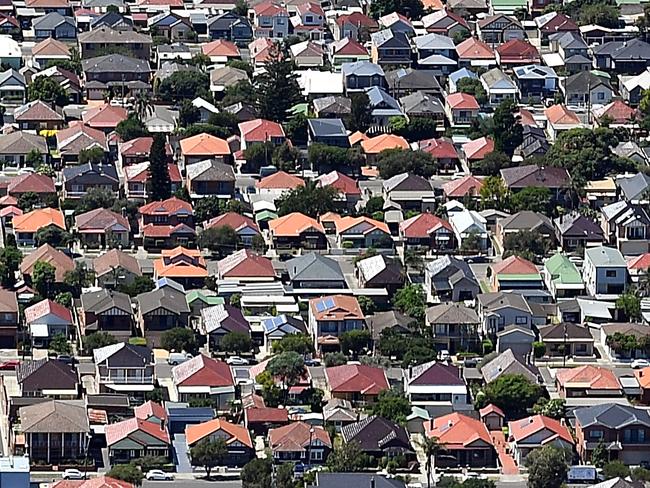What you should do about Labor’s negative gearing changes
Labor has just revealed when its proposed changes to negative gearing rules will come into effect. Whether you’re an investor, seller, buyer or renter, here’s what you need to consider.
Economy
Don't miss out on the headlines from Economy. Followed categories will be added to My News.
A deadline has been set for Labor’s controversial negative gearing tax changes that will impact real estate owners, investors, buyers and sellers.
Shadow Treasurer Chris Bowen today said January 1, 2020, would be the date that it would stop negative gearing tax deductions for future purchases of established investment properties. It would also cut back the capital gains tax concessions from the same date.
Understandably, many people are worried about the changes and wondering what to do next.
The short answer is nothing immediately. Labor hasn’t won the election yet, and even if it does the changes would have to pass through an unpredictable parliament.
The detailed answer is that people should start thinking about and planning for potential changes that may affect their investments and the housing market overall.
Labor won’t hold back on negative gearing
Battle lines drawn over negative gearing
Why house prices could plummet even further
No matter what your situation, here’s what you should know.
EXISTING INVESTORS
Labor’s plans are not retrospective, so existing investors can still claim their negative gearing tax deductions as they always have.
The capital gains tax change – potentially more costly for investors – is also not retrospective so current investors keep their benefits.
The potential danger for investors is that Labor’s move puts more downward pressure on a falling national property market.
The Property Council today said it was strongly opposed to the move and “deeply concerned with its potential impacts on housing markets and the broader economy at this uncertain time in the cycle”.
NEW INVESTORS
Here’s where it gets interesting. If you’re thinking about investing in real estate, it’s going to be much better to do it before December 31 if Labor’s plans become law.
After that date, you could still claim negative gearing deductions on new investments if buying a brand new property, because the policy only applies to established houses.
But you would potentially be badly stung by the capital gains tax changes, which reduce the discount on capital gains from 50 per cent to 25 per cent for assets including property and shares.
Currently, if you hold an investment property for more than a year, when you sell it only 50 per cent of the capital gain gets added to your taxable income that year.
Once that CGT discount drops to 25 per cent, a person who buys a property next year for $500,000 and sells it a decade later for $1 million will end up having $375,000 added to their taxable income – rather than $250,000 – resulting in a much bigger tax bill. Ouch.

SELLERS
If you believe the forecasters that say houses prices will fall further because of the tax changes, it might be worth selling real estate before January 1 to lock in a higher profit. After January 1 you might find fewer buyers – particularly investors – interested in your property.
BUYERS
On the flipside, buyers may wish to bide their time to see if house prices do drop sharply after the changes. Established properties are likely to be cheaper.
OWNERS
Sit back, relax, and watch the whole thing unfold.
If you’re a long-term property owner with no plans to sell, there’s no point panicking. If Labor’s plans became a complete disaster for the real estate market they could be wound back.
If there’s a minor impact on property markets, nobody is affected too much.
In the meantime, watch the sparks fly in the upcoming election campaign as Labor and Coalition go head-to-head over tax.
RENTERS
A report this week by SQM Research warned Labor’s tax changes could push rents up between 7 and 12 per cent between 2020 and 2022, because supply of rental properties would drop if investors stayed away.
If you’re a renter, keep an eye on the election and the rule changes, and perhaps consider signing a longer-term lease later this year if you can.
Originally published as What you should do about Labor’s negative gearing changes

